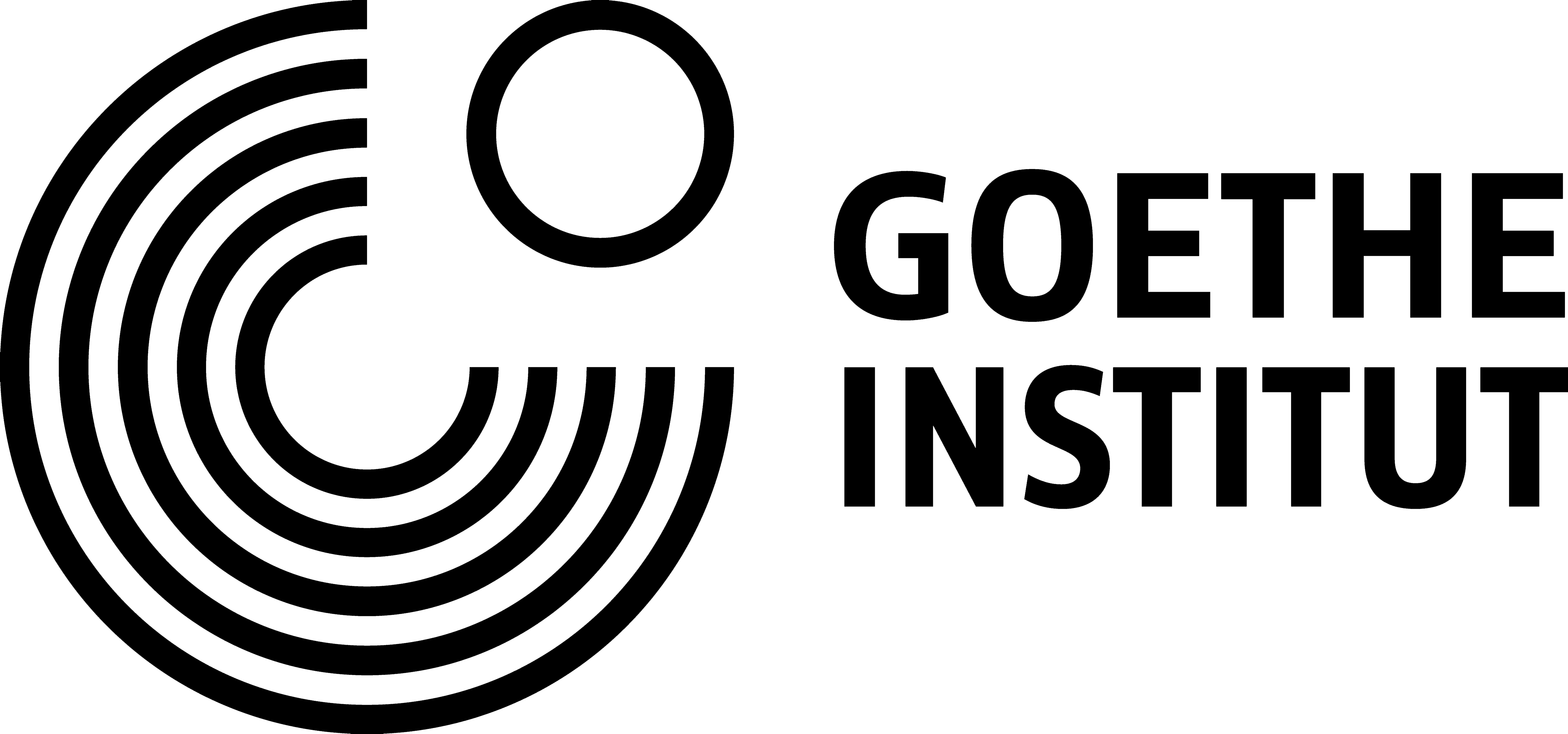INVITATION TO BID
Designing and implementing a training programme for young women* and a small-scale public event
for the Goethe-Institut project
‘African Feminisms – Rights, Representation, Resources’
Deadline
for submission
Sunday, 3rd November 2024 – 23h00 SAST
Proposals need to be submitted electronically with the 5 PDFs as attachments to Julia Scheller (Julia.Scheller@goethe.de) with the subject line “CSO Training programme – (Name of Country)” no later than Sunday, 3 November 2024 – 23h00 SAST. Late submissions will not be considered.
The Goethe-Institut invites Civil Society Organisations (CSOs) in Sub-Saharan Africa to bid for a service agreement for the design and implementation of a training programme/s for young women* and the organisation of a small-scale public event. This initiative is part of the “African Feminisms – Rights, Representation, Resources” project. The project is implemented by the Goethe-Institut in Nigeria, Rwanda and South Africa and funded by the German Federal Foreign Office.
Taking feminism and intersectionality into consideration, the training can be in – but is not limited to – the themes of gender rights and advocacy, technical / educational training, feminist leadership, technology / digital space, access to resources and representation of young women* in the political, economic and social sphere. The explicit target group is young women* between 18 and 30 years.
The project ‘African Feminisms - Rights, Representation, Resources’ is based on the guidelines of the German feminist foreign policy and aims to explore feminisms on the African continent and in Germany. The aim of the project is to apply feminist practices in training and capacity-building programmes and to open new perspectives on feminisms through discursive and artistic work. The project is an initiative of the Goethe-Institut project ‘House of African Feminisms’.
The guidelines for feminist foreign policy focus on feminism as a global movement. In this approach, feminisms are to be understood as plural and their diversity and different histories are to be recognized. The policy offers the opportunity for a deeper understanding of feminisms, the application of feminist practice in training programmes and networking opportunities for young women*. It also aims to encourage new perspectives on feminisms through artistic work and representing the outcome in Germany.
The "African Feminisms” project follows the triad formulated in the guidelines of the German feminist foreign policy which are:
The Goethe-Institut is seeking the services of Civil Society Organisations in Sub-Saharan Africa to deliver the following services:
The proposals with the highest number of cumulative points across all sections will be awarded.
The Goethe-Institut reserves the right to ask for additional information after submission.
The organisation must submit the following:
Proposals need to be submitted electronically with the above 5 PDFs as attachments to Julia Scheller (Julia.Scheller@goethe.de) with the subject line “CSO Training programme – (Name of Country)” no later than Sunday, 3 November 2024 – 23h00 SAST. Late submissions will not be considered.
Three online information sessions will be conducted in English, French and Portuguese for interested applicants to ask any questions they may have about the application process. These sessions will take place on the
Interested applicants can send an email to hoaf@goethe.de to request for the link to their preferred session.
Please note that the final decision of selection of proposals will be made by an independent jury.
Contact for further inquiries:
Julia Scheller: Julia.Scheller@goethe.de
Please add the following declaration of consent to your application: “I consent to the processing of my personal data contained in the application documents for the purposes of the admission procedure at the Goethe-Institut.”
The Goethe-Institut is the cultural institute of the Federal Republic of Germany with a global reach. We promote knowledge of the German language abroad and foster international cultural cooperation. We convey a comprehensive picture of Germany by providing information on Germany's cultural, social and political life. The Goethe-Instituts activities in this region have a special focus on strengthening the pan-African dialogue, and on promoting mobile access to information and education.
A project of the Goethe-Institut, supported by the German Federal Foreign Office
Taking feminism and intersectionality into consideration, the training can be in – but is not limited to – the themes of gender rights and advocacy, technical / educational training, feminist leadership, technology / digital space, access to resources and representation of young women* in the political, economic and social sphere. The explicit target group is young women* between 18 and 30 years.
Context
The project ‘African Feminisms - Rights, Representation, Resources’ is based on the guidelines of the German feminist foreign policy and aims to explore feminisms on the African continent and in Germany. The aim of the project is to apply feminist practices in training and capacity-building programmes and to open new perspectives on feminisms through discursive and artistic work. The project is an initiative of the Goethe-Institut project ‘House of African Feminisms’.
The guidelines for feminist foreign policy focus on feminism as a global movement. In this approach, feminisms are to be understood as plural and their diversity and different histories are to be recognized. The policy offers the opportunity for a deeper understanding of feminisms, the application of feminist practice in training programmes and networking opportunities for young women*. It also aims to encourage new perspectives on feminisms through artistic work and representing the outcome in Germany.
The "African Feminisms” project follows the triad formulated in the guidelines of the German feminist foreign policy which are:
- Women*'s rights for feminist politics of the future
- Representation of feminist positions in politics and civil society, and artistic contexts
- Access to resources for feminist opinion-forming and projects (finance, knowledge, community)
Services Required
The Goethe-Institut is seeking the services of Civil Society Organisations in Sub-Saharan Africa to deliver the following services:
- Planning and implementation of training programmes for young women*, applying feminist practices in at least one of the following areas: Rights, Representation, Resources
- Conceptualize and implement a small-scale public event aimed at engaging with a wider audience on their work as well as on feminist topics and approaches
Guidelines
- The required services shall be implemented from December 2024 until latest May 2026
- The activities can take place in any country in Sub-Saharan Africa
- The activities shall follow approaches and practices in line with a feminist ethos (CSOs that may not explicitly identify as feminist are welcome, provided they subscribe to feminist principles and gender-sensitive or transformative approaches)
- The activities shall focus on young women* between 18 and 30 years
- The activities shall target strengthening young women* from marginalized groups. This, can be, but is not limited to, women* from rural areas, women* with disabilities, and women* with limited access to education, among others
Expected Outcomes:
- CSOs have independently conducted training programmes and public events in the field of feminisms
- CSOs have expanded their portfolio of services
- Young women* have gained knowledge about their rights, and have increased political, social and economic participation and/or access to resources in their respective countries
- Young women* have gained confidence and can make use of their acquired knowledge to bring about change through their activities and in their daily lives
Eligibility criteria for bidding CSOs:
- Registered Civil Society Organisation in Sub-Saharan Africa
- At least two years of proven work experience in the fields of gender-justice, equality & feminism(s) across relevant themes
- Track record of designing and implementing capacity-building programmes for young women* in Sub-Saharan Africa: and
- Proven experience in project management and budget monitoring
- Profiles of internal and external team members demonstrating competence for the conceptualization and implementation of the training programme
- Award criteria (criteria for selection): The project team of the Goethe-Institut will evaluate the different bids submitted based on the following award criteria:
- Proposed budget
- Quality of the proposed concept for training programmes and public event
- Responsiveness to the needs of the local context
- Experimental / innovative ideas, such as new formats, new approaches, new methodologies and new activities within the organisation’s portfolio
- Feasibility (timeframe, budget & capacity); and
- Demonstratable feminist ethos through approaches and practices
- CVs of project team
The proposals with the highest number of cumulative points across all sections will be awarded.
The Goethe-Institut reserves the right to ask for additional information after submission.
Submission of offer
The organisation must submit the following:
- Registration document of the organization (1 PDF)
- Profile or portfolio of the organisation, incl. track record of previously implemented similar projects (indicating the project budgets and incl. 2-3 references) (1 PDF)
- A detailed concept note of not more than 5 pages in total outlining the planned activities incl. a timeline and budget (up to 20.000 EUR per CSO over max. 18 months), taking the selection criteria above into consideration (1 PDF)
- Profiles of internal and external project team members (1 PDF)
- A short description of how the organisation follows a feminist ethos (200 words) (1 PDF)
- Proposals can be submitted in English, French or Portuguese
Proposals need to be submitted electronically with the above 5 PDFs as attachments to Julia Scheller (Julia.Scheller@goethe.de) with the subject line “CSO Training programme – (Name of Country)” no later than Sunday, 3 November 2024 – 23h00 SAST. Late submissions will not be considered.
Three online information sessions will be conducted in English, French and Portuguese for interested applicants to ask any questions they may have about the application process. These sessions will take place on the
- 21st October at 14h00 SAST (English) - Download pdf
- 22nd October at 14h00 SAST (French) - Download pdf
- 23rd October at 14h00 SAST (Portuguese) - Download pdf
Interested applicants can send an email to hoaf@goethe.de to request for the link to their preferred session.
Please note that the final decision of selection of proposals will be made by an independent jury.
Contact for further inquiries:
Julia Scheller: Julia.Scheller@goethe.de
Please add the following declaration of consent to your application: “I consent to the processing of my personal data contained in the application documents for the purposes of the admission procedure at the Goethe-Institut.”
About the Goethe-Institut
The Goethe-Institut is the cultural institute of the Federal Republic of Germany with a global reach. We promote knowledge of the German language abroad and foster international cultural cooperation. We convey a comprehensive picture of Germany by providing information on Germany's cultural, social and political life. The Goethe-Instituts activities in this region have a special focus on strengthening the pan-African dialogue, and on promoting mobile access to information and education.
A project of the Goethe-Institut, supported by the German Federal Foreign Office


